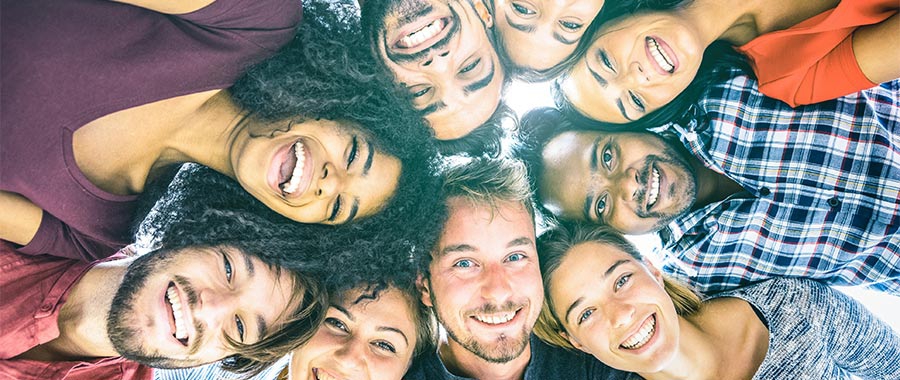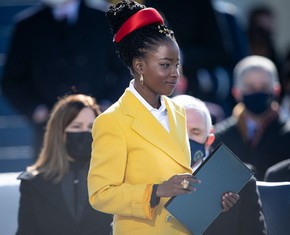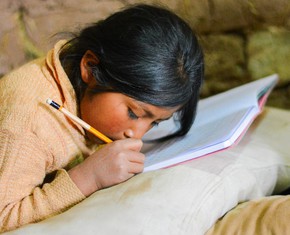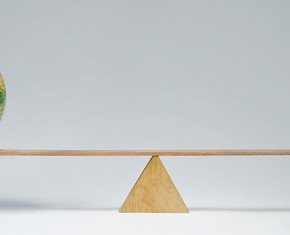The views expressed in our content reflect individual perspectives and do not represent the authoritative views of the Baha'i Faith.
Many people consider the United States a melting pot of different races and cultures—but Americans have yet to fully figure out how to truly embrace and celebrate diversity.
Evidence shows that the remnants of segregation still linger in the makeup of our communities, and that the gap between different ethnic groups remains unbridged. Many cities across the United States now have more segregation than ever before.
Schools, organizations, and communities throw around the terms diversity and inclusion, so we claim to understand the benefits of diversity, but do we really? Many say that they love and appreciate diversity, but we still struggle as a society to create communities and institutions that embrace unity in diversity.
In Peekskill, NY, where I currently reside, one can see diversity in its many manifestations—race, class, and culture, to name a few. That diversity makes our city a dynamic, rich, and interesting place to live and visit. However, when you look at houses of worship, recreation centers, restaurants, coffee shops, and other places where people gather, most are segregated.
In communities like mine where an economic resurgence has taken place, newcomers are typically attracted by rising prosperity, as well as diversity and culture, which adds a layer of allure. But that prosperity has a dark underside.
Characteristic of this kind of demographic shift, instead of integration, an economic and political takeover by the wealthier segments of the population occurs, which does not include the already disenfranchised (usually minorities) in new policy creation and decision-making. As gentrification takes hold, these disenfranchised people become relegated to the fringes, as does the opportunity to create a diverse, unified and just community.
So just because we live in close proximity to one another doesn’t automatically mean we can overcome inequality and prejudice, or immediately yield all the potential benefits that diversity has to offer.
Racial prejudice lies at the root of why we struggle with coming together in harmony. We need to eradicate the racial hierarchy that prejudice creates—the most challenging problem keeping us from truly embracing diversity in this country. Many people see diversity as a threat, and would prefer that we remain in our separate enclaves—because they cannot see its true benefits.
The Baha’i teachings, which have always strongly advocated for an end to racial prejudice, say:
The diversity in the human family should be the cause of love and harmony, as it is in music where many different notes blend together in the making of a perfect chord. If you meet those of different race and color from yourself, do not mistrust them and withdraw yourself into your shell of conventionality, but rather be glad and show them kindness. Think of them as different colored roses growing in the beautiful garden of humanity, and rejoice to be among them. – Abdu’l-Baha, Paris Talks, p. 54.
Even some who work for an end to prejudice tend to confuse tokenism with diversity, however. Diversity does not mean inviting people of different colors to events just so that in outward appearance we look like that many-colored garden—especially if we then fail to include all people in meaningful ways, by inviting them to our homes, introducing them to neighbors, and more importantly, sharing power and relinquishing control.
The Baha’i teachings ask us to trust those of different races and colors, to show them kindness, to include them. Abdu’l-Baha, the son of the prophet and founder of the Baha’i Faith, Baha’u’llah, modeled this when he visited the United States in 1912. He disrupted the status quo at the time by inviting people of color to the table and giving them the opportunity to be heard, and by encouraging them to assume positions of leadership. He did so intentionally, and refused to sacrifice the work of justice and equity for the comfort of those in power.
Diversity is also sometimes confused with forced assimilation, where people of different races are invited to the table but then are expected to suppress who they are and assimilate into the dominant culture. The Baha’i writings challenge that assimilation by calling for unity in diversity:
Let there be no misgivings as to the animating purpose of the world-wide law of Baha’u’llah. It does not ignore, nor does it attempt to suppress, the diversity of ethnical origins, of climate, of history, of language and tradition, of thought and habit, that differentiate the peoples and nations of the world. It calls for a wider loyalty, for a larger aspiration than any that has animated the human race. – Shoghi Effendi, The World Order of Baha’u’llah, p. 41.
Unity in diversity requires that we do away with platitudes, such as “I don’t see color,” that tend to erase people’s narratives. To truly practice unity in diversity requires becoming more intentional about it, by taking stock of who our friends are and who we invite to our dinner table. It also requires questioning ourselves: where do we spend our money? At our board meetings, who makes the influential decisions? In schools, which children are being called out for bad behavior and which are being recognized for their successes? In healthcare, how do we treat people of color versus white people? Are those in power willing to relinquish power; to hand it over to those with less power? These kinds of questions and the answers they provoke can help set us on a path toward true unity in diversity.
















Comments
Sign in or create an account
Continue with Googleor